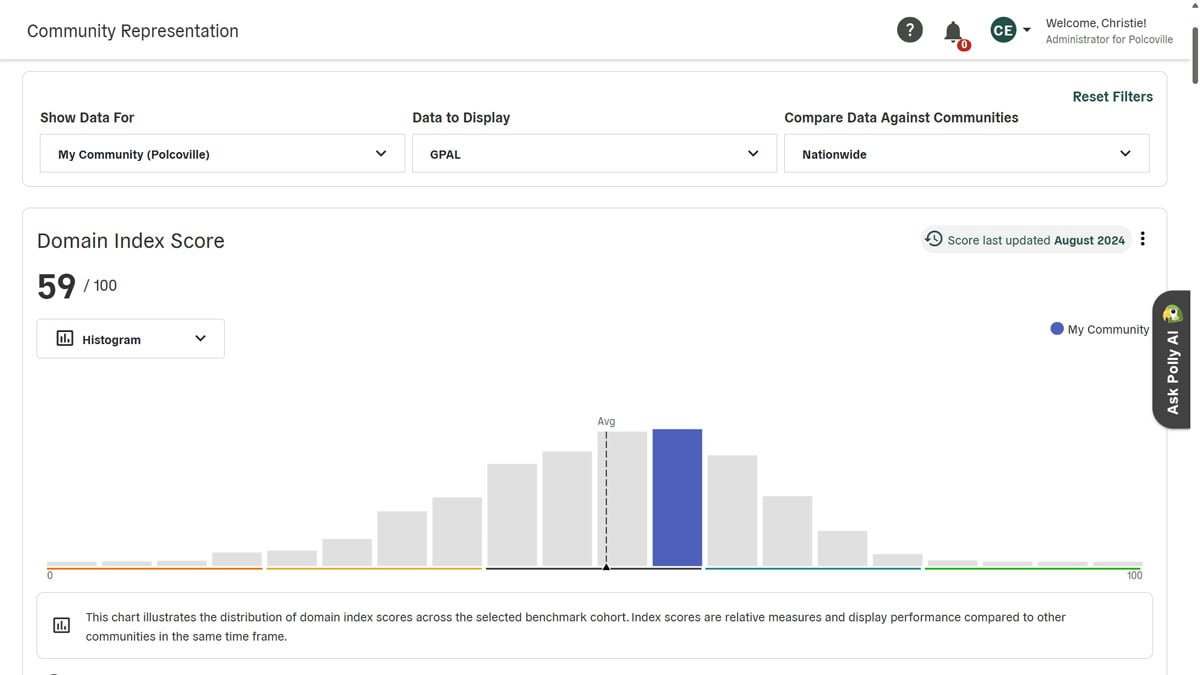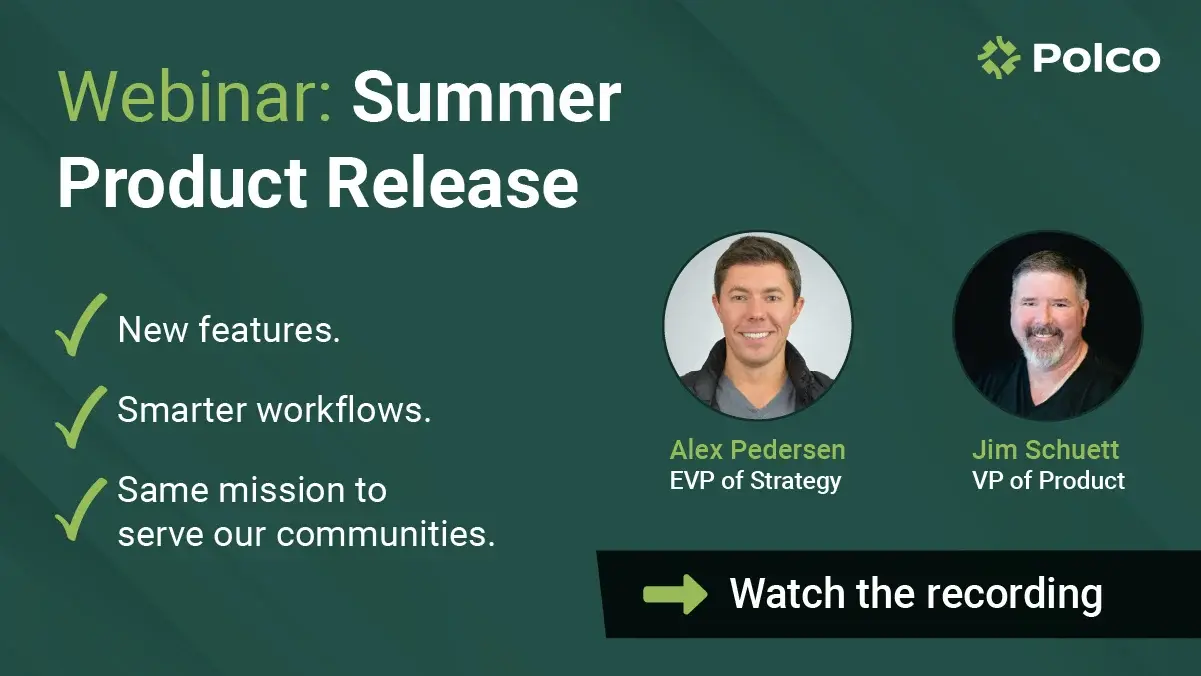From Chaos to Clarity: Lead with Confidence Using Domain Scores
By Polco on August 22, 2025

In a world where public leaders are overwhelmed by fragmented charts, conflicting metrics, and an endless stream of data, Polco’s Domain Scores offer something rare: clarity.
These percentile-based scores distill hundreds of complex indicators, ranging from public safety and housing affordability to health and the economy, into one digestible number per domain. The result? A powerful snapshot of how your community is really doing.
And more importantly: how you compare to others.
What Are Domain Scores?
A Domain Score is a composite performance measure that shows how a community compares to others nationwide across key aspects of livability, like Safety, Economy, Health, Housing, and Community Representation.
Each score is calculated from a curated mix of objective public data, benchmark survey results, and performance indicators, then normalized using Polco’s GPAL framework and indexed by percentile.
For example:
- A score of 72 in Public Safety means your community performs better than 72% of similar places in the nation.
- A score of 46 in Housing Affordability? That’s a signal to dig deeper and take action.
Unlike raw stats, domain scores provide context, something decision-makers desperately need. They show where you stand, how you’re trending, and what to prioritize next.
How Track Brings These Scores to Life
Domain scores are part of Polco’s Track platform, an interactive dashboard purpose-built for public sector leaders. With Track, you can:
- Visualize trends over time with performance charts.
- Compare your scores against:
- Neighboring cities
- Regional or state averages
- Custom peer groups (e.g., similar population, tax base, or economic makeup)
- Drill into data by ZIP code, county, or census tract using FIPS-based mapping.
You’re not just looking at numbers, you’re uncovering narratives, spotting patterns, and answering questions before they’re even asked.
Who Uses This and Why It Works
Whether you're briefing city council, updating your strategic plan, or answering a tough question from a resident, domain scores help you back up your message with data that’s trusted, transparent, and timely.
Key use cases include:
- Setting goals and tracking progress in strategic plans.
- Evaluating new policies (Did public safety improve after the initiative?)
- Benchmarking equity and inclusion alongside traditional metrics.
- Writing grants and justifying budgets with authoritative, comparative data.
In fact, cities like Santa Barbara County and Shakopee, MN have used Polco tools to win awards, build public trust, and foster more productive community conversations.
The Power Behind the Scores
Polco’s domain scores are powered by the largest civic dataset in the U.S., drawn from national agencies (Census, CDC, BLS), benchmark surveys like The National Community Survey, and local data submitted directly by governments through Polco’s platform.
All of this is structured within the GPAL framework (Government Performance Action & Learning), co-developed with institutions like Stanford and ICMA.
This framework ensures that every score reflects what truly matters to residents—not just bureaucratic benchmarks.
Why It Matters Now
Public leaders today face mounting expectations:
- Residents want transparency.
- Councils want context.
- Staff need direction.
- And everyone wants results.
Domain scores give you all three: measurement, meaning, and momentum. They're not just data points. They’re signals. And when you follow the signal, you lead your community with clarity and purpose.
Ready to Go from Guessing to Knowing?
Polco’s domain scores are available now through the Track platform, included with most subscription plans. They integrate seamlessly with your existing survey data and engagement tools.
Don’t just collect data. Use it. Because when you can clearly show how you’re doing, you’re one step closer to knowing what to do next.
Popular posts
Sign-up for Updates
You May Also Like
These Related Stories
GPAL and Track: All About the Data

Beyond the Snowbird: How Boomers are Shaping the Future of Retirement


